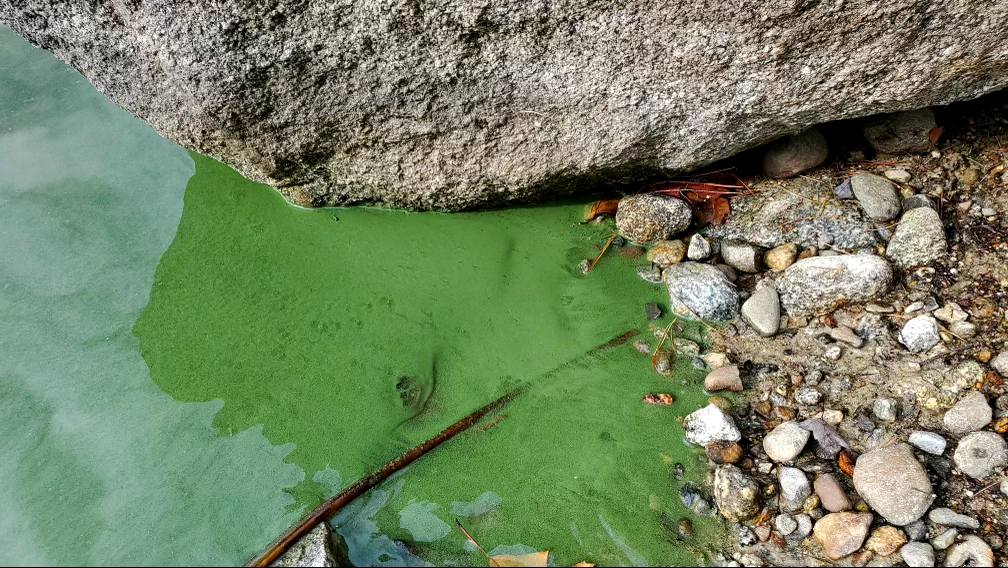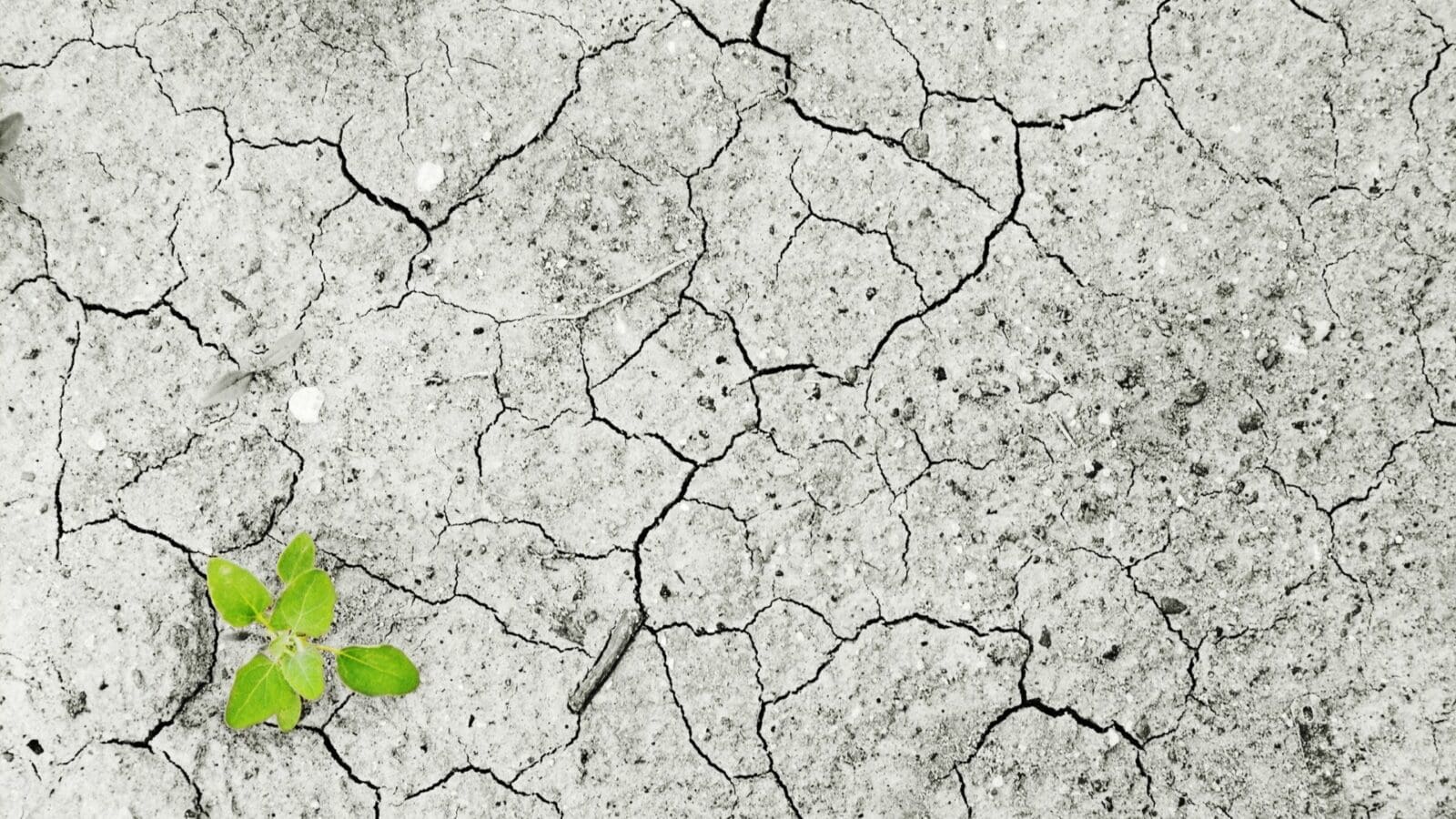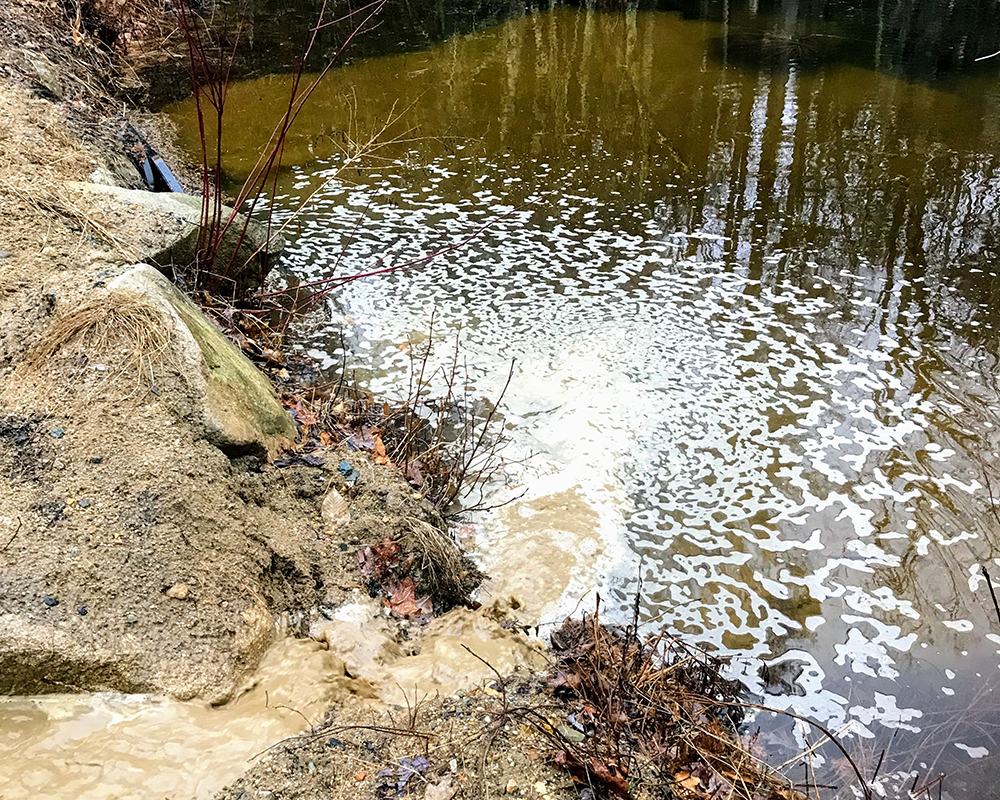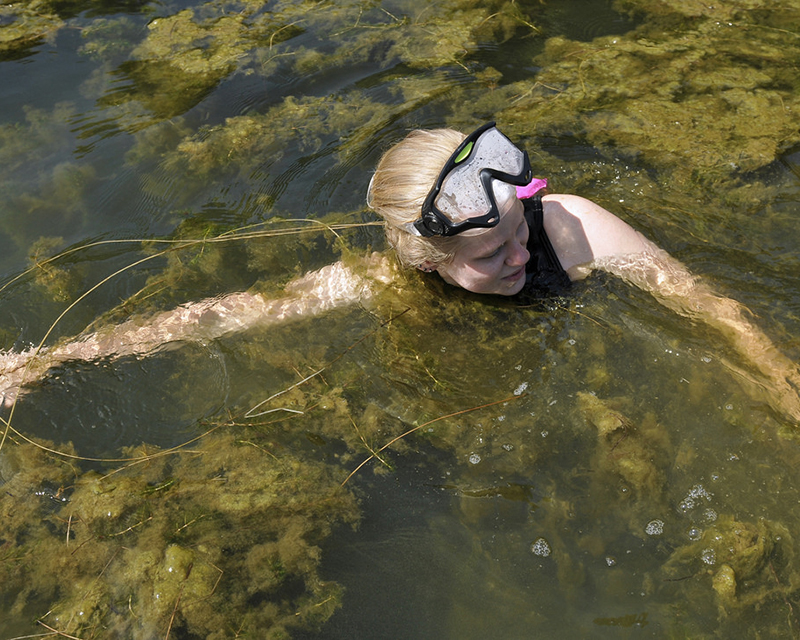Water Quality
Water Quality in New Hampshire's Lakes
New Hampshire is home to approximately 1,000 lakes and ponds—some of the cleanest and healthiest lakes in the country. However, there has been a downward trend in water quality in many of our lakes over recent years.
What drains from the land into the water is a main factor affecting the health of our lakes.
The New Hampshire Department of Environmental Services publishes a report every two years detailing the condition of New Hampshire’s lakes and ponds. It analyzes how well they support aquatic life and recreational activities. Some waterways are classified today as being impaired, meaning they are not healthy enough to support a variety of plants, animals, and uses.
Threats to Water Quality

Cyanobacteria
New Hampshire’s lakes are experiencing an increase in the frequency and duration of cyanobacteria blooms. These blooms can produce toxins that make people, pets, and wildlife sick.
Climate Change
New Hampshire is experiencing increased precipitation, but it’s happening in fewer storms. This means that larger rainstorms occur after dry periods. As a result, the land can’t soak up all the rain at once, leading to more runoff water and nutrients entering our lakes that contribute to the growth of native and invasive plants, algae, and toxic cyanobacteria.


Polluted Runoff Water
The water quality of a lake is primarily determined by what flows into it from the surrounding landscape (the watershed).
Our lakes are home to many different kinds of plants and animals that are good for the lake. But, some species are harmful to our lakes.


 by Martech Consulting
by Martech Consulting